immune support
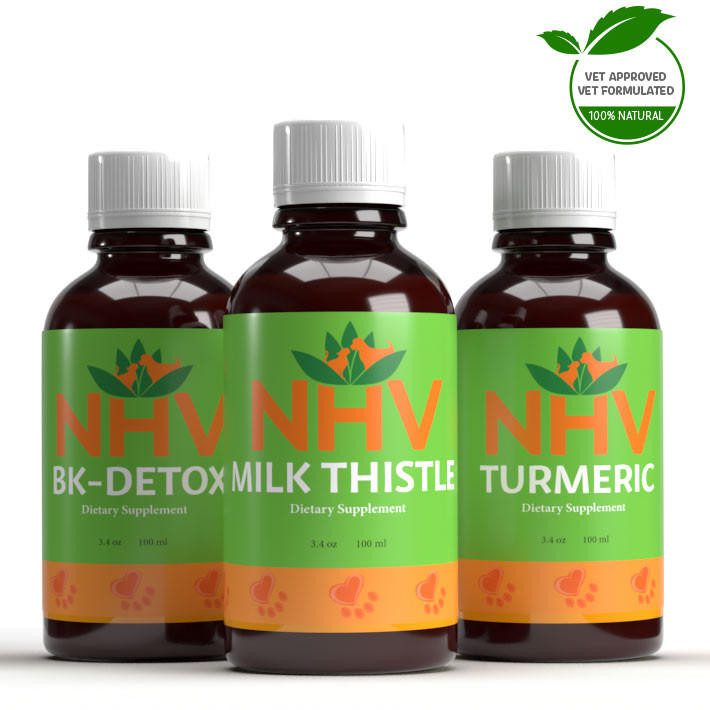
free shipping over $100 (USA & Canada)
1-877-937-4372 the pet expert hotline

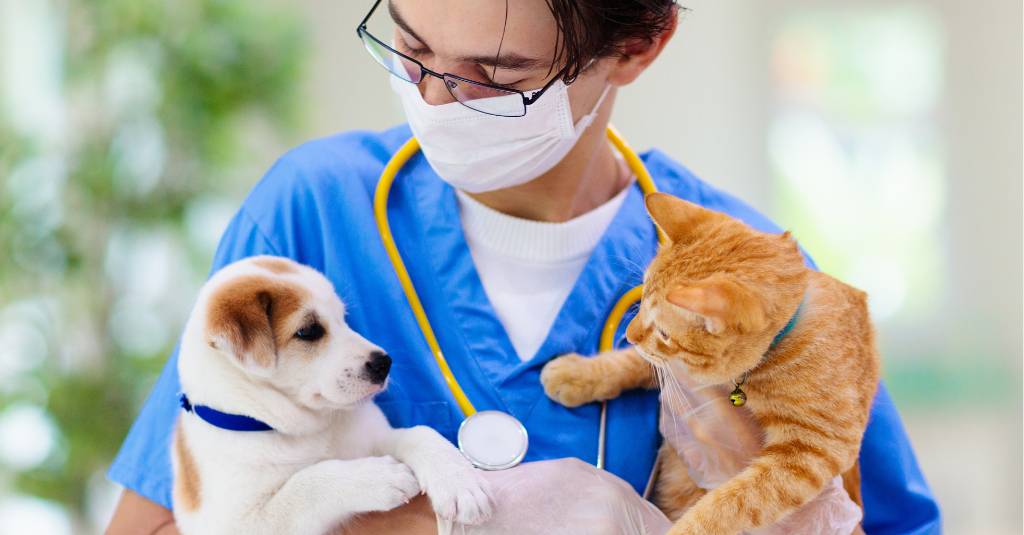
Our pets are beloved members of our families, and their health and well-being are paramount. Just like humans, pets can suffer from a range of health issues, including blood disorders. Blood disorders in pets can significantly impact their overall health, affecting everything from energy levels to their ability to fight off infections.
Blood disorders in pets are serious conditions that require prompt attention and care.
Understanding the causes, symptoms, and treatments of these conditions will help you better care for your furry friend. In this blog, we will discuss common blood disorders in pets and how to support their health with natural supplements such as the Blood Disorders Super Support kit.
Blood disorders in pets can result from various causes, including:
Identifying blood disease in pets early is crucial for effective treatment. Common signs to be watched for include:
If you notice any of the signs mentioned above, it’s important to proactively seek veterinary advice to ensure the well-being of your pet. Early intervention is crucial for addressing rapidly progressing blood diseases as well. Signs that require immediate veterinary attention include:
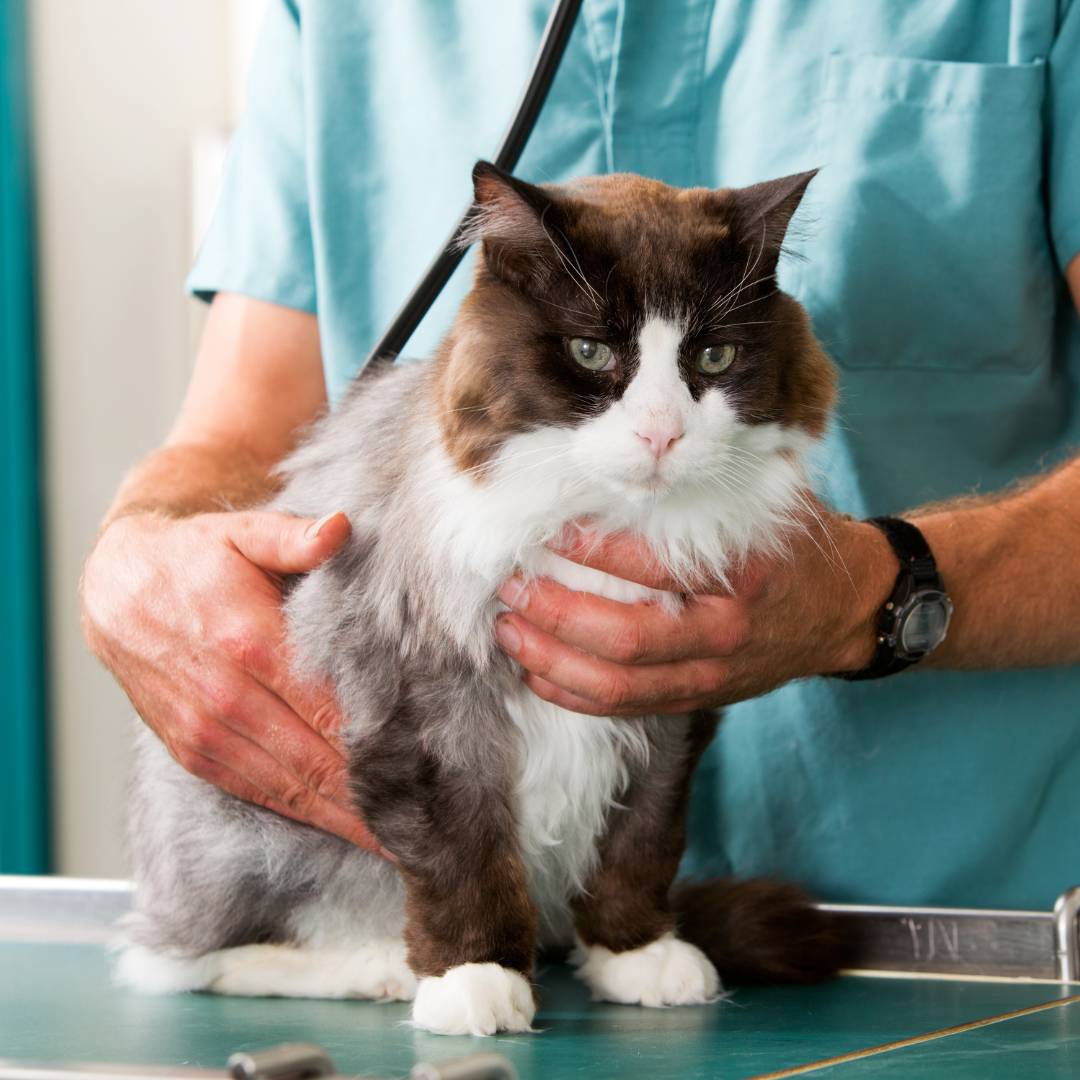
Diagnosing blood disorders in pets typically involves a comprehensive examination by a veterinarian, including blood tests and possibly imaging studies. These tests play a vital role in identifying the type and severity of blood disorders, aiding in the diagnosis and treatment process.
Treatment options depending on the specific condition may include:
Blood-related conditions in pets are serious conditions that require prompt attention and care. By understanding the causes, recognizing the signs, and seeking timely veterinary advice, you can help manage these conditions effectively. Regular preventative measures and the use of natural supplements like the Blood Disorder Super Support kit can also play an important role in maintaining your fur kiddo’s health. Remember, proactive care is the best way to ensure your furry friends live long, healthy, and happy lives.
immune support

BK-Detox, Milk Thistle & Turmeric
bundle and save with pet expert kits
3 month supply for a small to medium size pet.
What is it?
Our Natural Blood Disorder Super Support Kit helps soothe inflammation, support gentle detoxification, and promote blood health.
How Does it Work?
Why Should I Trust It?
Easy-to-give natural supplements formulated by veterinarians.


What is it?
Our Natural Blood Disorder Super Support Kit helps soothe inflammation, support gentle detoxification, and promote blood health.
How Does it Work?
Why Should I Trust It?
Easy-to-give natural supplements formulated by veterinarians.

Cats and Dogs get sick. When this happens, their immune system takes a hit and their body’s blood health may need a little extra love and care.
There are three types of cells in blood: red blood cells, white blood cells, and platelets. Essentially, red blood cells deliver oxygen to the body, white blood cells fight infection, and platelets start the formation of blood clots for wound healing. If there are quantitative abnormalities (too many or too few cells) or qualitative abnormalities (improper functioning) of any type of blood cell, a blood disorder is likely present. Our four-legged friends may experience a congenital condition (inherited) that cannot be cured but can be managed, while an acquired blood disorder will first need to be identified by your vet before deciding on an appropriate care plan.
When your cat or dog is battling a serious health condition like diabetes, obesity, or pulmonary hypertension, their immune system becomes weakened, leading to a decrease in white blood cells and impaired immune function. This buildup of toxins and pathogens may trigger abnormal blood clotting, and changes in blood pressure or blood sugar levels. Help support your furkiddo’s blood health with our Blood Disorders Super Support Kit containing BK-Detox, Milk Thistle, and Turmeric.
This bundle is not suitable for pets suffering from bleeding disorders like Von Willebrand’s Disease or quantitative disorders like Hemolytic Anemia (low iron) because properties in Milk Thistle and Turmeric may inhibit iron absorption and red blood cell formation. For pets with bleeding disorders or low red blood cell count, we recommend Multi Essentials, Petomega 3, and Natures Immuno.
Obesity: A common health concern for many pets, extra weight can exhaust the body’s immune system and cardiovascular system which often leads to other health complications such as multiple organ inflammation, increased blood cholesterol, decreased cardiovascular function, diabetes, and a higher risk for blood clots.
Diabetes Mellitus: develops when the body is no longer able to regulate insulin and blood sugar levels. Too much sugar in the blood may cause damage to blood vessel walls and increase the risk for heart disease and stroke.
Pulmonary Hypertension: A buildup of cholesterol in the blood often leads to the weakening of the heart and an increase in blood pressure. A decrease in cardiovascular function may lead to poor blood circulation and a buildup of toxins in the blood.
Autoimmune Diseases like pancreatitis, cancer, adrenal gland disorders, kidney disease, and thyroid issues may lead to uncontrolled clotting (pathologic thrombosis) which may cause blocked arteries and an increased risk of blood clots, especially in lung tissue.
For added support alongside vet prescribed treatments, we recommend NHV's Blood Disorders Super Support Kit to help restore healthy blood sugar levels, blood pressure and immune function. This bundle contains BK-Detox, Milk Thistle, and Turmeric. BK-Detox contains beneficial herbal ingredients to help detoxify the blood, increase white blood cell count, support cardiovascular health and help prevent autoimmune disease. Milk Thistle contains silymarin which helps protect an overworked liver and kidneys (to metabolize excess sugar and fat), encourages liver regeneration, and offers support for diabetes, obesity, and gallbladder issues. Our formulation of Turmeric adds antioxidant and nutrient support that is beneficial for relieving inflammation and helping to restore immune cell production.
Your pet’s health and wellness mean everything to us. For our cat and dog blood disorders kits, we have worked with a holistic veterinarian and a master herbalist to formulate gentle yet effective remedies to focus on the areas of the body most affected. For any questions or concerns about your furkiddo’s blood health, don’t hesitate to reach out to an NHV Pet Expert - we are here for you!
Made with the finest, organically grown, or ethically harvested herbs. Made specifically for pets, vet-formulated and vet approved.
BK-Detox
Milk Thistle
Turmeric
Select your pet's weight to determine the correct dose.
To be taken twice daily. Determine your pet’s weight and then use the easy chart below to determine the correct dose. This is the minimum dosage.
Pet's Weight Dosage
0 - 15 lb = 0.5 ml
16 - 30 lb = 1.0 ml
31 - 45 lb = 1.5 ml
46 - 60 lb = 2.0 ml
61 - 75 lb = 2.5 ml
Over 75 lb = 3.0 ml
For small animals (rabbits, ferrets), avians and reptiles use 1 drop for every 2 lb of body weight.
How to Administer
Shake well before use. The easiest method is to use the dropper provided and place the drops into your pet’s food or favorite treat. You can also use the dropper and squirt directly into the pet’s mouth. Some pets can be finicky, if this occurs consider hiding the drops in foods most pet’s love such as fish, chicken or yogurt or a favorite treat. If your pet only eats dry food then soak a few kibbles at feeding time.
For Best Results
Herbal dietary supplements are beneficial to the health and well-being of your pet and are safe for long-term use. Every pet responds to natural herbal supplements differently, therefore it is important to be consistent and administer the product daily. Supplements generally take two to four weeks to take effect, however this will vary from one animal to the next.
Product Storage
All NHV Natural Pet Products are pure herbal extracts and contain no artificial additives, preservatives or coloring. Shelf life after opening is 6 months and must be refrigerated after opening.
All information provided by NHV Natural Pet Products is for educational purposes only.
Cats and Dogs get sick. When this happens, their immune system takes a hit and their body’s blood health may need a little extra love and care.
There are three types of cells in blood: red blood cells, white blood cells, and platelets. Essentially, red blood cells deliver oxygen to the body, white blood cells fight infection, and platelets start the formation of blood clots for wound healing. If there are quantitative abnormalities (too many or too few cells) or qualitative abnormalities (improper functioning) of any type of blood cell, a blood disorder is likely present. Our four-legged friends may experience a congenital condition (inherited) that cannot be cured but can be managed, while an acquired blood disorder will first need to be identified by your vet before deciding on an appropriate care plan.
When your cat or dog is battling a serious health condition like diabetes, obesity, or pulmonary hypertension, their immune system becomes weakened, leading to a decrease in white blood cells and impaired immune function. This buildup of toxins and pathogens may trigger abnormal blood clotting, and changes in blood pressure or blood sugar levels. Help support your furkiddo’s blood health with our Blood Disorders Super Support Kit containing BK-Detox, Milk Thistle, and Turmeric.
This bundle is not suitable for pets suffering from bleeding disorders like Von Willebrand’s Disease or quantitative disorders like Hemolytic Anemia (low iron) because properties in Milk Thistle and Turmeric may inhibit iron absorption and red blood cell formation. For pets with bleeding disorders or low red blood cell count, we recommend Multi Essentials, Petomega 3, and Natures Immuno.
Obesity: A common health concern for many pets, extra weight can exhaust the body’s immune system and cardiovascular system which often leads to other health complications such as multiple organ inflammation, increased blood cholesterol, decreased cardiovascular function, diabetes, and a higher risk for blood clots.
Diabetes Mellitus: develops when the body is no longer able to regulate insulin and blood sugar levels. Too much sugar in the blood may cause damage to blood vessel walls and increase the risk for heart disease and stroke.
Pulmonary Hypertension: A buildup of cholesterol in the blood often leads to the weakening of the heart and an increase in blood pressure. A decrease in cardiovascular function may lead to poor blood circulation and a buildup of toxins in the blood.
Autoimmune Diseases like pancreatitis, cancer, adrenal gland disorders, kidney disease, and thyroid issues may lead to uncontrolled clotting (pathologic thrombosis) which may cause blocked arteries and an increased risk of blood clots, especially in lung tissue.
For added support alongside vet prescribed treatments, we recommend NHV's Blood Disorders Super Support Kit to help restore healthy blood sugar levels, blood pressure and immune function. This bundle contains BK-Detox, Milk Thistle, and Turmeric. BK-Detox contains beneficial herbal ingredients to help detoxify the blood, increase white blood cell count, support cardiovascular health and help prevent autoimmune disease. Milk Thistle contains silymarin which helps protect an overworked liver and kidneys (to metabolize excess sugar and fat), encourages liver regeneration, and offers support for diabetes, obesity, and gallbladder issues. Our formulation of Turmeric adds antioxidant and nutrient support that is beneficial for relieving inflammation and helping to restore immune cell production.
Your pet’s health and wellness mean everything to us. For our cat and dog blood disorders kits, we have worked with a holistic veterinarian and a master herbalist to formulate gentle yet effective remedies to focus on the areas of the body most affected. For any questions or concerns about your furkiddo’s blood health, don’t hesitate to reach out to an NHV Pet Expert - we are here for you!
Made with the finest, organically grown, or ethically harvested herbs. Made specifically for pets, vet-formulated and vet approved.
BK-Detox
Milk Thistle
Turmeric
Select your pet's weight to determine the correct dose.
To be taken twice daily. Determine your pet’s weight and then use the easy chart below to determine the correct dose. This is the minimum dosage.
Pet's Weight Dosage
0 - 15 lb = 0.5 ml
16 - 30 lb = 1.0 ml
31 - 45 lb = 1.5 ml
46 - 60 lb = 2.0 ml
61 - 75 lb = 2.5 ml
Over 75 lb = 3.0 ml
For small animals (rabbits, ferrets), avians and reptiles use 1 drop for every 2 lb of body weight.
How to Administer
Shake well before use. The easiest method is to use the dropper provided and place the drops into your pet’s food or favorite treat. You can also use the dropper and squirt directly into the pet’s mouth. Some pets can be finicky, if this occurs consider hiding the drops in foods most pet’s love such as fish, chicken or yogurt or a favorite treat. If your pet only eats dry food then soak a few kibbles at feeding time.
For Best Results
Herbal dietary supplements are beneficial to the health and well-being of your pet and are safe for long-term use. Every pet responds to natural herbal supplements differently, therefore it is important to be consistent and administer the product daily. Supplements generally take two to four weeks to take effect, however this will vary from one animal to the next.
Product Storage
All NHV Natural Pet Products are pure herbal extracts and contain no artificial additives, preservatives or coloring. Shelf life after opening is 6 months and must be refrigerated after opening.
All information provided by NHV Natural Pet Products is for educational purposes only.
parasite support
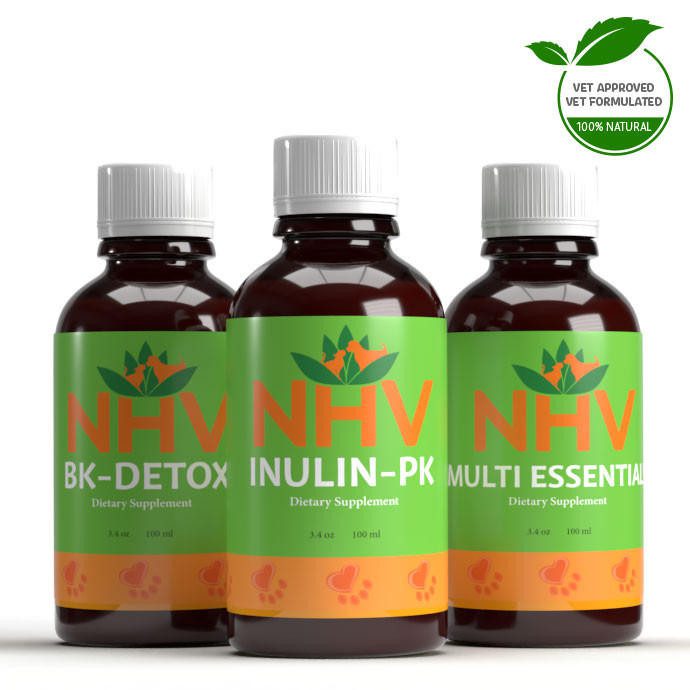
BK-Detox, Inulin-PK & Multi Essentials
bundle and save with pet expert kits
3 month supply for a small to medium size pet.
What is it?
NHV’s Natural Blood Parasite and Nutritional Support Kit helps cleanse the blood and remove harmful toxins, delivers essential nutrients to improve energy levels and strengthens the immune system.
How Does it Work?
Why Should I Trust It?
Safe and 100% natural vet-formulated remedies.

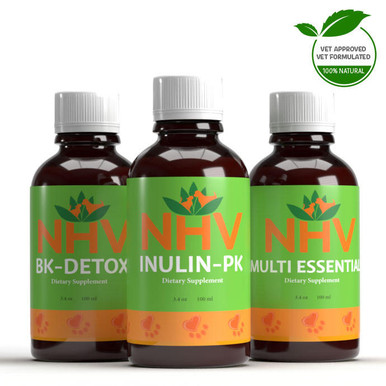
What is it?
NHV’s Natural Blood Parasite and Nutritional Support Kit helps cleanse the blood and remove harmful toxins, delivers essential nutrients to improve energy levels and strengthens the immune system.
How Does it Work?
Why Should I Trust It?
Safe and 100% natural vet-formulated remedies.

When your cat or dog experiences a health issue like a blood parasite, their immune system becomes compromised, leading to a buildup of harmful toxins in the body. This buildup of toxins may lead to more severe health problems such as hemolytic anemia (breakdown of red blood cells), urinary tract issues (bloody urine) and liver issues (jaundice).
Babesiosis in Dogs and Cats: is a disease transmitted by ticks and caused by parasites of the genus Babesia, which infect blood cells. Babesiosis affects many wild and domestic animals and, sometimes even humans. In some cases, the parasite causes a chronic illness with severe anemia as the main symptom. Other possible symptoms include fever, increased heart rate, muscle tremors, weight loss, anemia, jaundice, diarrhea or red-colored urine. Your vet can run some tests to confirm the presence of this parasite, but many of the drugs used to treat this infection may not be widely available worldwide. Supportive treatment is recommended and may include: anti-inflammatory drugs, antioxidants, and corticosteroids.
Cytauxzoonosis (common in cats): is a life-threatening disease in domestic cats caused by the parasite Cytauxzoon felis found in wild bobcats and transmitted by ticks. Domestic cats living near wooded areas where bobcats and ticks may live in close proximity are at the highest risk of infection. Most cases occur in the southcentral and southeastern states of the US from April through September (when ticks are active). Symptoms may appear around ten days after a tick bite and hit a peak about six days later. Cats may be feverish, depressed, dehydrated, have respiratory issues, muscle weakness, and have low appetite. There have been a variety of antiparasitic drugs used with little success. Supportive care like IV fluids, nutritional therapy and anti-inflammatory drugs are highly recommended.
Dogs: Mycoplasma haemocanis is a parasite that lives on the red blood cells of infected dogs and is transmitted by infected blood (for example, blood transfusions or contaminated needles) or through lice, fleas, ticks, and mosquitoes. Symptoms include lethargy, anemia and fever. Specific types of antibiotics are used for this blood parasite, but even after treatment, some dogs will remain infected, so other kinds of supplemental aid are highly recommended to support the body long-term.
Cats: Hemoplasmas (previously known as Haemobartonella and Eperythrozoon) live on the red blood cells that may cause hemolytic anemia in domestic cats. The anemia can range from mild to severe. In general, infections may not show signs in healthy adults but can cause severe anemia in animals with weakened immunity or other health issues such as feline leukemia virus (FeLV).
Hepatozoonosis: is a blood parasite of wild and domestic carnivorous (meat-eating) animals. In cats, the disease is caused by Hepatozoon felis. In dogs, this parasite is transmitted by the brown dog tick, but its method of transmission is not by biting its host. The tick picks up the organism from an infected host while feeding. An uninfected carnivore then gets sick by ingesting the tick. Infected cats and dogs do not typically show any symptoms. Your trusted vet can run some tests to confirm the presence of this blood parasite. Using flea and preventive tick supports are highly recommended to reduce symptoms and encourage healing.
Chagas Disease: is caused by the parasite Trypanosoma cruzi. The disease occurs most frequently in people and dogs and is transmitted by insect vectors from susceptible hosts like opossums, armadillos, rodents, and wild, meat-eating animals. The disease occurs in rural Central and South America and localized areas of the southern US. Dogs and cats may become infected and introduce this parasite into houses, where people and dogs may become infected by contamination of wounds or by eating infected food. Affected dogs may die of sudden heart failure or have short- or long-term inflammation in their heart. Other signs may include swollen lymph nodes, low appetite and lethargy, muscle weakness, vomiting, diarrhea, and an enlarged liver or spleen. Because there are not yet any vaccines available, Chagas' disease is generally managed by reducing the number of insects that spread the disease.
To eliminate your furkiddo's blood parasites, your veterinarian may recommend various medications, including antibiotics and antiparasitic treatments. For a natural approach to work alongside traditional vet treatments and replenish essential nutrients (that may have been lost due to a damaged liver, kidneys and GI tract), we recommend NHV's Blood Parasite with Nutritional Support Kit. This bundle, which may be used alongside traditional dewormers, contains BK-Detox, Inulin-PK and Multi Essentials. BK-Detox contains beneficial herbal ingredients that help flush the liver and other vital organs to help prevent conditions like jaundice and anemia and restore immune health. Inulin-PK contains many herbal ingredients that have been used for over a millennia to help repair and protect the liver, support GI tract healing and fight infection. Multi Essentials is a beneficial aid to help fill nutritional voids that may result from an overworked liver (trying to rid the body of extra toxins from parasites).
With NHV Supplements, you can help provide your pet with the extra support they need to fight off a parasitic infection, restore immune health and replenish their body with vital nutrients. Supplements like BK-Detox, Inulin PK, and Multi Essentials are safe for long-term use, and all of our care products are created by a holistic veterinarian and master herbalist with over 50 years of experience. Get in touch with a pet expert if you want to discuss your furkiddo’s unique care plan.
Made with the finest, organically grown, or ethically harvested herbs. Made specifically for pets, vet-formulated and vet approved.
BK Detox
Inulin-PK
Multi Essentials
Select your pet's weight to determine the correct dose.
To be taken twice daily. Determine your pet’s weight and then use the easy chart below to determine the correct dose. This is the minimum dosage.
Pet's Weight Dosage
0 - 15 lb = 0.5 ml
16 - 30 lb = 1.0 ml
31 - 45 lb = 1.5 ml
46 - 60 lb = 2.0 ml
61 - 75 lb = 2.5 ml
Over 75 lb = 3.0 ml
For small animals (rabbits, ferrets), avians and reptiles use 1 drop for every 2 lb of body weight.
How to Administer
Shake well before use. The easiest method is to use the dropper provided and place the drops into your pet’s food or favorite treat. You can also use the dropper and squirt directly into the pet’s mouth. Some pets can be finicky, if this occurs consider hiding the drops in foods most pet’s love such as fish, chicken or yogurt or a favorite treat. If your pet only eats dry food then soak a few kibbles at feeding time.
For Best Results
Herbal dietary supplements are beneficial to the health and well-being of your pet and are safe for long-term use. Every pet responds to natural herbal supplements differently, therefore it is important to be consistent and administer the product daily. Supplements generally take two to four weeks to take effect, however this will vary from one animal to the next.
Product Storage
All NHV Natural Pet Products are pure herbal extracts and contain no artificial additives, preservatives or coloring. Shelf life after opening is 6 months and must be refrigerated after opening.
All information provided by NHV Natural Pet Products is for educational purposes only.
When your cat or dog experiences a health issue like a blood parasite, their immune system becomes compromised, leading to a buildup of harmful toxins in the body. This buildup of toxins may lead to more severe health problems such as hemolytic anemia (breakdown of red blood cells), urinary tract issues (bloody urine) and liver issues (jaundice).
Babesiosis in Dogs and Cats: is a disease transmitted by ticks and caused by parasites of the genus Babesia, which infect blood cells. Babesiosis affects many wild and domestic animals and, sometimes even humans. In some cases, the parasite causes a chronic illness with severe anemia as the main symptom. Other possible symptoms include fever, increased heart rate, muscle tremors, weight loss, anemia, jaundice, diarrhea or red-colored urine. Your vet can run some tests to confirm the presence of this parasite, but many of the drugs used to treat this infection may not be widely available worldwide. Supportive treatment is recommended and may include: anti-inflammatory drugs, antioxidants, and corticosteroids.
Cytauxzoonosis (common in cats): is a life-threatening disease in domestic cats caused by the parasite Cytauxzoon felis found in wild bobcats and transmitted by ticks. Domestic cats living near wooded areas where bobcats and ticks may live in close proximity are at the highest risk of infection. Most cases occur in the southcentral and southeastern states of the US from April through September (when ticks are active). Symptoms may appear around ten days after a tick bite and hit a peak about six days later. Cats may be feverish, depressed, dehydrated, have respiratory issues, muscle weakness, and have low appetite. There have been a variety of antiparasitic drugs used with little success. Supportive care like IV fluids, nutritional therapy and anti-inflammatory drugs are highly recommended.
Dogs: Mycoplasma haemocanis is a parasite that lives on the red blood cells of infected dogs and is transmitted by infected blood (for example, blood transfusions or contaminated needles) or through lice, fleas, ticks, and mosquitoes. Symptoms include lethargy, anemia and fever. Specific types of antibiotics are used for this blood parasite, but even after treatment, some dogs will remain infected, so other kinds of supplemental aid are highly recommended to support the body long-term.
Cats: Hemoplasmas (previously known as Haemobartonella and Eperythrozoon) live on the red blood cells that may cause hemolytic anemia in domestic cats. The anemia can range from mild to severe. In general, infections may not show signs in healthy adults but can cause severe anemia in animals with weakened immunity or other health issues such as feline leukemia virus (FeLV).
Hepatozoonosis: is a blood parasite of wild and domestic carnivorous (meat-eating) animals. In cats, the disease is caused by Hepatozoon felis. In dogs, this parasite is transmitted by the brown dog tick, but its method of transmission is not by biting its host. The tick picks up the organism from an infected host while feeding. An uninfected carnivore then gets sick by ingesting the tick. Infected cats and dogs do not typically show any symptoms. Your trusted vet can run some tests to confirm the presence of this blood parasite. Using flea and preventive tick supports are highly recommended to reduce symptoms and encourage healing.
Chagas Disease: is caused by the parasite Trypanosoma cruzi. The disease occurs most frequently in people and dogs and is transmitted by insect vectors from susceptible hosts like opossums, armadillos, rodents, and wild, meat-eating animals. The disease occurs in rural Central and South America and localized areas of the southern US. Dogs and cats may become infected and introduce this parasite into houses, where people and dogs may become infected by contamination of wounds or by eating infected food. Affected dogs may die of sudden heart failure or have short- or long-term inflammation in their heart. Other signs may include swollen lymph nodes, low appetite and lethargy, muscle weakness, vomiting, diarrhea, and an enlarged liver or spleen. Because there are not yet any vaccines available, Chagas' disease is generally managed by reducing the number of insects that spread the disease.
To eliminate your furkiddo's blood parasites, your veterinarian may recommend various medications, including antibiotics and antiparasitic treatments. For a natural approach to work alongside traditional vet treatments and replenish essential nutrients (that may have been lost due to a damaged liver, kidneys and GI tract), we recommend NHV's Blood Parasite with Nutritional Support Kit. This bundle, which may be used alongside traditional dewormers, contains BK-Detox, Inulin-PK and Multi Essentials. BK-Detox contains beneficial herbal ingredients that help flush the liver and other vital organs to help prevent conditions like jaundice and anemia and restore immune health. Inulin-PK contains many herbal ingredients that have been used for over a millennia to help repair and protect the liver, support GI tract healing and fight infection. Multi Essentials is a beneficial aid to help fill nutritional voids that may result from an overworked liver (trying to rid the body of extra toxins from parasites).
With NHV Supplements, you can help provide your pet with the extra support they need to fight off a parasitic infection, restore immune health and replenish their body with vital nutrients. Supplements like BK-Detox, Inulin PK, and Multi Essentials are safe for long-term use, and all of our care products are created by a holistic veterinarian and master herbalist with over 50 years of experience. Get in touch with a pet expert if you want to discuss your furkiddo’s unique care plan.
Made with the finest, organically grown, or ethically harvested herbs. Made specifically for pets, vet-formulated and vet approved.
BK Detox
Inulin-PK
Multi Essentials
Select your pet's weight to determine the correct dose.
To be taken twice daily. Determine your pet’s weight and then use the easy chart below to determine the correct dose. This is the minimum dosage.
Pet's Weight Dosage
0 - 15 lb = 0.5 ml
16 - 30 lb = 1.0 ml
31 - 45 lb = 1.5 ml
46 - 60 lb = 2.0 ml
61 - 75 lb = 2.5 ml
Over 75 lb = 3.0 ml
For small animals (rabbits, ferrets), avians and reptiles use 1 drop for every 2 lb of body weight.
How to Administer
Shake well before use. The easiest method is to use the dropper provided and place the drops into your pet’s food or favorite treat. You can also use the dropper and squirt directly into the pet’s mouth. Some pets can be finicky, if this occurs consider hiding the drops in foods most pet’s love such as fish, chicken or yogurt or a favorite treat. If your pet only eats dry food then soak a few kibbles at feeding time.
For Best Results
Herbal dietary supplements are beneficial to the health and well-being of your pet and are safe for long-term use. Every pet responds to natural herbal supplements differently, therefore it is important to be consistent and administer the product daily. Supplements generally take two to four weeks to take effect, however this will vary from one animal to the next.
Product Storage
All NHV Natural Pet Products are pure herbal extracts and contain no artificial additives, preservatives or coloring. Shelf life after opening is 6 months and must be refrigerated after opening.
All information provided by NHV Natural Pet Products is for educational purposes only.
immune support

Es-Clear, Bk Detox, Turmeric, & Milk Thistle
bundle and save with pet expert kits
3 month supply for a small to medium size pet.
What is it?
These all-natural supplements work together to support the liver and aid with detoxification. An excellent kit to help support pets fighting cancers.
How Does it Work?
Why Should I Trust It?
100% natural remedies formulated by veterinarians.


What is it?
These all-natural supplements work together to support the liver and aid with detoxification. An excellent kit to help support pets fighting cancers.
How Does it Work?
Why Should I Trust It?
100% natural remedies formulated by veterinarians.

These all-natural supplements can be taken to synergistically support blood detoxification in your dog or cat. The four supplements, ES-Clear, Turmeric, Milk Thistle, and BK-Detox have been formulated by a veterinarian to work alongside conventional treatment. Supplement your pet with the Blood Detox Gold Health Kit for true comprehensive support.
NHV remedies are formulated by veterinarians with 20+ years of experience treating pets. Our approach to wellness using powerful, all-natural ingredients helps to support the comprehensive health of our cats and dogs.
Turmeric and milk thistle are two of the most potent detoxifying herbs available. NHV’s ES-Clear and BK-Detox are each formulated with multiple potent herbs that help your pet flush away toxins, and reverse the damage caused by toxins.
Select your pet's weight to determine the correct dose.
To be taken twice daily. Determine your pet’s weight and then use the easy chart below to determine the correct dose. This is the minimum dosage.
Pet's Weight Dosage
0 - 15 lb = 0.5 ml
16 - 30 lb = 1.0 ml
31 - 45 lb = 1.5 ml
46 - 60 lb = 2.0 ml
61 - 75 lb = 2.5 ml
Over 75 lb = 3.0 ml
For small animals (rabbits, ferrets), avians and reptiles use 1 drop for every 2 lb of body weight.
How to Administer
Shake well before use. The easiest method is to use the dropper provided and place the drops into your pet’s food or favorite treat. You can also use the dropper and squirt directly into the pet’s mouth. Some pets can be finicky, if this occurs consider hiding the drops in foods most pet’s love such as fish, chicken or yogurt or a favorite treat. If your pet only eats dry food then soak a few kibbles at feeding time.
For Best Results
Herbal dietary supplements are beneficial to the health and well-being of your pet and are safe for long-term use. Every pet responds to natural herbal supplements differently, therefore it is important to be consistent and administer the product daily. Supplements generally take two to four weeks to take effect, however this will vary from one animal to the next.
Product Storage
All NHV Natural Pet Products are pure herbal extracts and contain no artificial additives, preservatives or coloring. Shelf life after opening is 6 months and must be refrigerated after opening.
All information provided by NHV Natural Pet Products is for educational purposes only.
These all-natural supplements can be taken to synergistically support blood detoxification in your dog or cat. The four supplements, ES-Clear, Turmeric, Milk Thistle, and BK-Detox have been formulated by a veterinarian to work alongside conventional treatment. Supplement your pet with the Blood Detox Gold Health Kit for true comprehensive support.
NHV remedies are formulated by veterinarians with 20+ years of experience treating pets. Our approach to wellness using powerful, all-natural ingredients helps to support the comprehensive health of our cats and dogs.
Turmeric and milk thistle are two of the most potent detoxifying herbs available. NHV’s ES-Clear and BK-Detox are each formulated with multiple potent herbs that help your pet flush away toxins, and reverse the damage caused by toxins.
Select your pet's weight to determine the correct dose.
To be taken twice daily. Determine your pet’s weight and then use the easy chart below to determine the correct dose. This is the minimum dosage.
Pet's Weight Dosage
0 - 15 lb = 0.5 ml
16 - 30 lb = 1.0 ml
31 - 45 lb = 1.5 ml
46 - 60 lb = 2.0 ml
61 - 75 lb = 2.5 ml
Over 75 lb = 3.0 ml
For small animals (rabbits, ferrets), avians and reptiles use 1 drop for every 2 lb of body weight.
How to Administer
Shake well before use. The easiest method is to use the dropper provided and place the drops into your pet’s food or favorite treat. You can also use the dropper and squirt directly into the pet’s mouth. Some pets can be finicky, if this occurs consider hiding the drops in foods most pet’s love such as fish, chicken or yogurt or a favorite treat. If your pet only eats dry food then soak a few kibbles at feeding time.
For Best Results
Herbal dietary supplements are beneficial to the health and well-being of your pet and are safe for long-term use. Every pet responds to natural herbal supplements differently, therefore it is important to be consistent and administer the product daily. Supplements generally take two to four weeks to take effect, however this will vary from one animal to the next.
Product Storage
All NHV Natural Pet Products are pure herbal extracts and contain no artificial additives, preservatives or coloring. Shelf life after opening is 6 months and must be refrigerated after opening.
All information provided by NHV Natural Pet Products is for educational purposes only.
Published: July 25, 2024